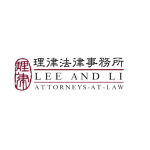The consolidation of financial institutions continued to be a hot topic in Taiwan in 2022 and created conversation between legal practitioners and regulators. High-profile transactions included the merger of Jih Sun Financial Holding Co. into Fubon Financial Holding Co., the sale of Citibank Taiwan's consumer banking business to DBS Taiwan, and Chubb group's acquisition of Cigna Taiwan Life Assurance Company Limited.
Like past years, green energy continues to thrive. Copenhagen Infrastructure Partners completed the transfer of a portion of shares in one of its windfarms to GPSC of Thailand. Investors' interest in solar energy projects also fueled the M&A market. Aside from the energy sector, there have been several consolidations of retail chains in recent years.
Both private and public M&A transactions drive the M&A market in Taiwan. While there were a few notable public M&A transactions in 2021 and 2022, there have been quite a few private M&A transactions in the market as well. For example, there have been several acquisitions in the energy and retail sectors, and smaller M&A deals for emerging technology companies. There may have been fewer investments by Chinese/Chinese-invested businesses in Taiwanese companies due to the change of political climate and the sensitive cross-strait situation.
Economic recovery
In 2022, M&A transactions in Taiwan were hardly affected by COVID partly due to the government's effective response to the pandemic. However, there has since been a decreased volume of investments from Japan, and this trend could be due to Japanese investors' practices such as performing on-site due diligence and in-person deal negotiations.
The Ministry of Economic Affairs (MOEA) has not yet published the statistical analysis of M&A deals from Q4 of 2022. But according to its analysis of Q1 to Q3 of 2022, the total value of announced deals was $177 million, with a deal count of 105, while the total value of announced transactions in the same period in 2020 was $346 million, with a deal count of 97.
The border restrictions and quarantine policies imposed due to COVID by each country were gradually lifted in late 2022. As a result of this easing, it is likely that the M&A activities that have decreased due to the restraints on performing on-site due diligence and in-person negotiations will likely resume in 2023.
In view of the Taiwanese government's policy to promote green energy, there should be a significant growth in M&A transactions pertaining to investments in offshore wind and solar energy projects, and other renewable energy companies. It is expected that M&A in 2023 will likely follow the pace set in 2022.
Deal trends
There have been several driving forces in the structuring of M&A deals in Taiwan. For example, given that the newly amended M&A Act (2016) allows for more flexibility in the form of consideration that an acquirer may offer to the shareholders of a target company, it should be easier for to achieve a 100% equity interest acquisition. This was evidenced by the increasingly popular cash-out share exchange structure in 2018 and 2019. Through 2020 and 2022, the slowing down of major transactions appeared to reflect public calls for more stringent disclosure and voting requirements for cash-out deals and de-listings.
Meanwhile, Taiwan’s government made amendments to laws and regulations governing Chinese investors' investment in Taiwan to prevent the circumvention of investment control. For example, according to the amendments:
Stricter criteria were adopted for identifying Chinese investments made through third-area intermediaries; and
Chinese investors wishing to control a Taiwanese company via contractual arrangement are also required to apply for regulatory approval.
Given these amendments, transactions must be carefully structured to meet the requirements applicable to Chinese investors in Taiwan.
During the last decade, big-ticket M&A in Taiwan has been mostly driven by strategic investors. Financial investors have mostly participated in M&A as co-investors or as acquirers of minority stakes in companies.
Since 2018 however, there has been a trend of financial investors returning to the market after being silent for almost a decade. A series of deals, including KKR’s take-private acquisition of LCY, Morgan Stanley’s take-private acquisition of Microlife, Blackrock’s acquisition of a solar portfolio and Permira's investment into aquaculture company Grobest, were all led by private equity funds. Although this trend of financial investment did not continue after 2019, there were still several transactions initiated by private equity funds through 2020 to 2022. These included the take-private acquisition of On-Bright by Magicapital, Pavilion Capital and Axiom Capital in 2020 and the take-private acquisition of Ginko by Baring Private Equity Asia in 2021 and 2022.
In response to the Taiwanese government's ambitious effort to promote renewable energy, M&A transactions in the energy sector continue to thrive in 2022, which are largely driven by foreign and local investors. The notable examples are several sell-downs of offshore wind farm developers, as well as several large-to-mid-size investments in the solar power plant industry. Further, quite a few global asset management firms are continuing involvement in building and acquiring Taiwan's internet data centres.
Additionally, Gogoro Inc. and Gorilla Technology Group both went public on Nasdaq through mergers with SPACs in 2021. In 2022, Perfect Corp., a Taiwanese SaaS unicorn focusing on providing augmented reality and AI SaaS solutions to beauty and fashion industries, went public on New York Stock Exchange through mergers with a SPAC. There could be a trend for Taiwan-based companies to seek IPOs in the US market through a de-SPAC, with a few de-SPAC transactions expected in 2023.
Deal disputes
The two independent directors of Taisun Enterprise Co., Ltd. (Taisun), supported by the non-management shareholders, convened a special shareholders meeting, intending to reelect members to the board of directors of Taisun.
In view of the dispute regarding the corporate management control over Solar Applied Materials Technology in 2021, the Financial Supervisory Commission (FSC) has proposed to amend the Securities and Exchange Act. This would ensure that the consent of the audit committee must be obtained before minority shareholders of a listed company can convene a special shareholders meeting.
While the proposal is pending discussion and enactment, the two independent directors of Taisun convened a special shareholders meeting without regard to the FSC's latest policy. The battle of corporate control over Taisun has led to a debate over accelerating the enactment of the amendment to ensure the legitimacy of the convening of a shareholders meeting by the audit committee.
Legislation
The main statutes governing M&A activities in Taiwan are the M&A Act, the Company Act, the Securities and Exchange Act, and the Fair Trade Act. In addition, under the Securities and Exchange Act, a set of tender offer rules are prescribed to govern tender offers for acquiring shares of public companies. Other statutes may also be relevant, for example, the Labour Standards Act, foreign and Chinese investment regulations, and tax laws and regulations.
The main regulatory body in charge of public M&A transactions is the Securities Futures Bureau SFB of the FSC, which is the government agency responsible for public companies. The other relevant regulatory bodies include the Fair Trade Commission, the authority in charge of antitrust clearance, and the Investment Commission, the authority in charge of reviewing foreign and Chinese investments. If the target holds any special license, the authority in charge of that special license may also need to review the transaction.
After the latest amendments to the Company Act took effect in November 2018, shareholders holding over 50% of shares are permitted to call a shareholders' meeting, without needing the board to call such meeting. This allows insurgent shareholders to replace the incumbent board as soon as the insurgent shareholders acquire a majority stake. This is worth noting for hostile takeovers.
In June 2022, Taiwan's Legislative Yuan (the parliament) passed the amendments to the M&A Act which came into effect in December 2022. The amendments focus on improving the flexibility of M&A while also protecting the shareholders' rights. The key amendments include, among others:
Enhancing the disclosure before the shareholders' meeting: previously, the directors' personal interests and the reasons for approval or dissent to the M&A should be explained at the board meeting and the shareholders meeting. The amendment further requires that such information be stated on the shareholders' meeting notice so that the shareholders are informed ahead of the meeting;
Enhancing the mechanism of appraisal right: previously, the dissenting shareholders should abstain from voting to exercise the appraisal right. The amendment allows the dissenting shareholders to vote against the proposal (instead of abstaining) and exercise the appraisal right;
Expanding the scope of ‘asymmetric M&A’: asymmetric M&A, where a company acquires a significantly smaller target, is only required to be approved by special resolution by the board. This previously included when the new shares issued by the merging company is not more than 20% of its voting shares or the consideration paid by the acquirer does not exceed 2% of the book value of the target. To enhance flexibility and efficiency of M&A, the amendment now allows more room for approval by a special resolution by the board by amending the threshold in the case above from 2% to 20% of the book value.
In August and December 2022, the Executive Yuan (the cabinet) proposed certain draft amendments to the Securities and Exchange Act, among which the following are noteworthy:
Confining the authorities of independent directors: under the current law, an independent director of a public company may act alone to exercise certain supervisory functions of the audit committee. This includes but is not limited to bringing a lawsuit against a director, calling a shareholders' meeting and representing the company when a director engages in self-dealing with the company. The draft amendment takes away certain authorities of an independent director and requires that the important matters mentioned above should be fully discussed and determined by the audit committee.
Lowering the threshold of insiders: under the current law, an insider who holds more than 10% of shares is subject to the reporting and disclosure obligations under the securities laws. The draft amendment lowers the shareholding threshold of an insider from 10% to 5% to bring more transparency from the regulatory perspective.
ESG
Due to the promotion of ESG awareness in society, there is growing demand for green energy. Large companies, especially manufacturers, have initiated relevant discussions with private power plants for procuring green energy. Aiming to strengthen the ESG reporting obligations and to enhance greenhouse gas emission disclosure of public companies, the SFB and the FSC announced the Corporate Governance 3.0: Sustainable Development Roadmap in 2020 and further published the Sustainable Development Roadmap for Public companies in January 2022.
To promote the transparency of ESG information, the government plans to launch a consolidated ESG platform for public companies in 2023. Also, since the outbreak of COVID, investors and stakeholders have become aware of the long-term value of ESG, such as engaging in diverse and sustainable sourcing for supply chains and embracing flexible work structures while ensuring the equality and fairness of employment. As the companies have been integrating ESG aspects into business operations and planning, ESG considerations may impact M&A in various aspects. This could include the investors' decision to invest in certain businesses or divest certain assets, the risks and opportunities in the target’s business, the target's ESG policies and compliance as well as the local regulations with respect to the ESG issues.
Market misconceptions
Information disclosure and insider trading are important and sensitive areas for public companies in Taiwan. However, local management sometimes underestimates their importance and fails to make the proper disclosures. In many instances, large public M&A transactions crossed red lines as regards insider trading and quite a few criminal investigations have been launched. There have been many attempts to manipulate the stock prices of public companies, or to intentionally buy or sell the shares of the target by the management before the information is legally and properly disclosed to the market to reap improper gains. A few notable deals in recent years were reported to have involved insider trading issues.
This type of misconduct harms the buyer’s trust and the seller's credibility and if, for example, the price goes up unreasonably before the information disclosure, the buyer might ask for a cooling-down period or even choose to halt the transaction.
Considering these concerns, public companies need to pay more attention to information disclosure when they plan M&A transactions. This includes understanding what information should be disclosed and the proper timing for disclosing certain pieces of information to the market. Most importantly of all, public company insiders should not trade any shares in the public company before proper information disclosure. Professional advice should be sought regarding this issue.
In Taiwan, M&A transactions are often subject to regulatory approvals, such as foreign investment approvals or Chinese investment approvals. For those industries that are required to hold a special licence, such as banking, securities firms, insurance companies, and so on, approval from the competent authority, such as the FSC, needs to be obtained in advance.
Meanwhile, any M&A transaction triggering the pre-closing antitrust filing threshold needs to obtain antitrust clearance before closing. Given all these requirements, whether regulatory approvals can be smoothly obtained is a critical issue to the completion of an M&A transaction in Taiwan. As such, it is advisable that investors intending to conduct an M&A transaction in Taiwan seek professional assistance in advance, in order to better understand the regulatory requirements and application process.
Technology
In local practice, it is common to conduct due diligence for M&A deals by accessing documents and files stored in virtual data rooms, rather than carrying out onsite due diligence in the target's physical location.
As a countermeasure against the COVID outbreak, the authorities allowed public companies to hold video-aided shareholders' meetings and the use of video conferences in corporate meetings has become prevalent in private companies. Such use of and familiarity with technology has facilitated the digitalisation of corporate governance in the post-COVID era.
As for the use of emerging technologies, in Taiwan, there have also been some discussions regarding how new technologies, such as AI, could support legal practice, including M&A transactions. However, these new technologies are still not commonly seen in Taiwan in M&A transactions.
Public or private
Under the Taiwan Company Act, material decisions require the approval from shareholders holding two-thirds of the voting shares present at a meeting. To gain absolute control of a public company, an acquirer should aim to acquire or control at least 67% of the shares. In practice, given that not all shareholders attend shareholder meetings, it is sometimes enough for one investor to control 30% to 40% of the voting rights. In sum, this would largely depend on the shareholding structure of the listed company.
The local practice for a public takeover is that:
The conditions of a tender offer usually include the minimum and maximum number of shares that the shareholders of the target company agree to tender during the tender offer period;
The tender offeror obtains the required government approvals, if any (such as antitrust clearance and foreign investment approval, for example); and
There is no occurrence of any material adverse event (subject to the approval of the FSC).
With respect to the condition of obtaining the required government approvals, the securities regulator has changed its position and no longer requires the offeror to launch a tender offer immediately after the deal is announced. Given this, the tender offeror may file the applications for the government approvals with the relevant authorities much earlier than when the tender offer is launched, so as to obtain the required approvals before the expiry of the tender offer period.
Large private M&A transactions often adopt a completion accounts mechanism. Under this mechanism, the purchase price is adjusted in accordance with the post-closing audit of the financial status of the target company, as at closing date. For transactions with a smaller value, it is more common for the parties to adopt the locked-box mechanism, which has become increasingly popular in recent years. Earn-out mechanisms and escrow arrangements are commonly seen in private M&A transactions. Recently, warranty and indemnity insurance are increasingly adopted in local deals by both seller and buyer.
The customary closing conditions attached to a private takeover offer usually include, among others, that:
The seller's representations and warranties remain true and correct;
The required government approval (if any) has been obtained;
Required third party consent (if any) has been obtained;
No material adverse event has occurred;
No action or government order is seeking to deter or enjoin the proposed M&A transaction; and
Other commercial arrangements required by the parties have been completed or achieved (this would usually be structured based on the due diligence findings).
If any party in a private M&A transaction belongs to a foreign corporate group, that party would normally require that the transaction documents be governed by the law of the foreign country where they are based. Any dispute arising from the transaction documents will then be resolved via the court of a foreign jurisdiction or an arbitration proceeding conducted outside Taiwan. Local parties would normally accept such arrangements.
Looking ahead
The IPO market in Taiwan is generally perceived as serving the purpose of fundraising rather than exiting. This is due to lock-up requirements, minimum shareholding requirements, legal requirements and limitations on selling shares that are applied to major shareholders, directors and supervisors. For the major shareholders of a public company that wish to sell their shares to a potential buyer, a mandatory tender offer may be triggered if more than 20% of the shareholding will be transferred within 50 days. Consequently, major shareholders exiting in the open market may be treated as a trade sale.
In recent years, due to factors such as the low price-earnings ratio of the Taiwan stock market and the strong performance of other stock exchanges in Asia, the Taiwanese IPO market has been slow. This is another reason why major shareholders usually would not consider a Taiwanese IPO as an exit priority.
On the other hand, trade sales or sales to financial sponsors have always been a major exit route. Other than highly regulated industries (such as media or cable TV) or acquisitions involving Chinese funding, there should be no substantial hurdle for an exit, albeit the regulatory approval process may sometimes take a long time. As for highly regulated industries and investments involving Chinese funding, the Taiwanese government has been criticised for the prolonged regulatory approval process and lack of transparency in its decision-making process.
Considering the current government’s conservative attitude towards Chinese investment, it is expected that not only major transactions involving Chinese funding will not take place in Taiwan, but the amount of investment and number of transactions involving Chinese funding might also be less.
Given that investments made by Chinese investors through the ‘control via contract’ structure also requires regulatory approval under the amended scheme, it is anticipated that there will be more inquiries regarding the alternative structures to achieve cross-strait collaboration.
But, seeing that the Taiwanese government is continuing to promote renewable energy and that some developers in the sector are divesting their investments, M&A transactions in the energy sector will likely continue to thrive in 2023. Taiwan is also likely to see a few consolidations of financial institutions and de-SPAC transactions in 2023.





